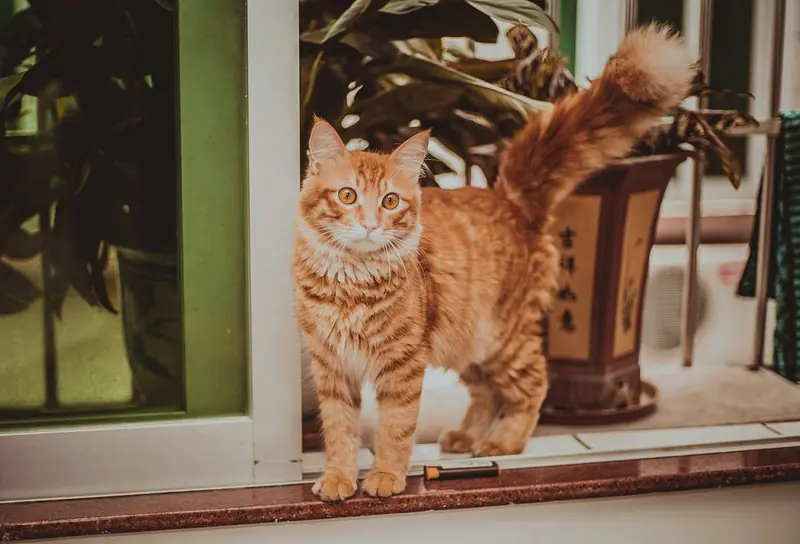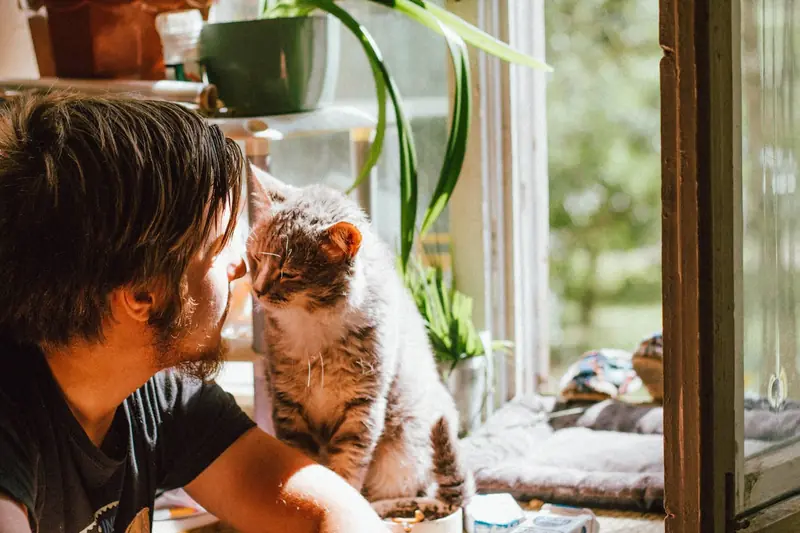Experts specializing in animal psychology have uncovered yet another mystery behind cat behavior. If you’ve ever seen a cat pacing in front of a closed door, you might have noticed how frantically it tries to get into the inaccessible room. An irritated feline may shove its paw through the gap, scratch at the door, or even attack it while meowing excitedly. But why does it do this?
Experts assert that this peculiar behavior is driven by both evolution and the way pet owners interact with their furry companions. Animal psychologists emphasize that when owners restrict their cat’s freedom of movement, it can lead to stress for the animal. So, why do closed doors irritate cats? According to California-based Dr. Karen Sueda, part of the reason lies in the fact that cats are curious creatures and experience a fear of missing out on something important—a feeling that’s familiar to humans as well. Cats enjoy keeping an eye on everything happening in their territory. This sense of control helps them survive in the wild, but it can also lead to aggressive behaviors, such as attacking doors.
Cats like to control access to spaces and vital resources, explained American cat behavior consultant Ingrid Johnson to Live Science. The expert from the International Association of Animal Behavior Consultants (IAABC) clarified, “This doesn’t make cats sneaky. It doesn’t change the fact that they are both predators and prey. They have to hunt to survive, while also wanting to feel secure in their environment.” Another animal behavior expert, Jane Ehrlich from Arizona, identified three things that cats dislike the most: lack of choice, lack of control, and changes. While cats don’t always want to be involved in what’s happening behind closed doors, they definitely want to know what’s going on.
The Hatred of Closed Doors: The Flip Side of Love for Their Owners
There’s another important explanation. Cats love their owners, especially the attention they receive, and closed doors can hinder the expression of that love. A 2017 study published in the journal Behavioural Processes found that most cats prefer interacting with humans. This interaction is more meaningful to them than other stimuli, such as food and toys. Moreover, these animals don’t understand that closed doors are temporary, said Ms. Johnson. “A place they previously had access to—where they felt safe, liked to sleep, nap, or do whatever else—has suddenly been taken away,” she added. This can cause stress for the animal.
To reduce their furry friend’s anxiety, cat owners should be consistent about which areas are accessible and which are off-limits. For example, if you don’t want your pet in the dining room, don’t block access only when you have guests; keep that room closed off at all times.

While cats often display attention-seeking behavior near closed doors, they can sometimes be in a state of real stress. Behaviors such as frantic meowing, flattening their ears, and hissing indicate that the animal is extremely upset, said Ms. Sueda. She also advised that if a cat owner has any concerns about their pet’s behavior, they should take the animal to a veterinarian.

